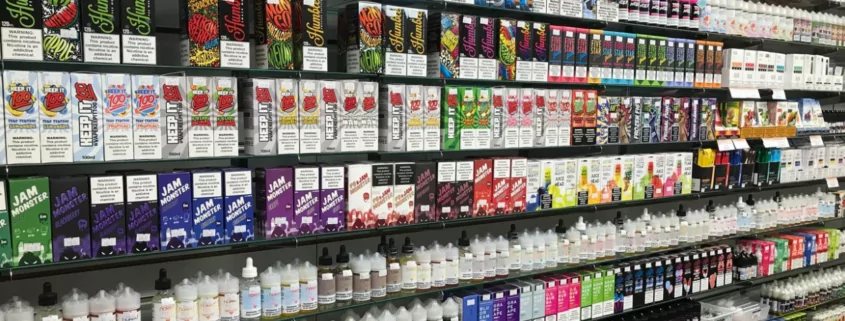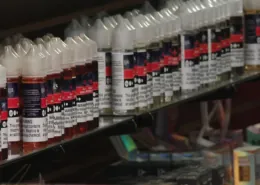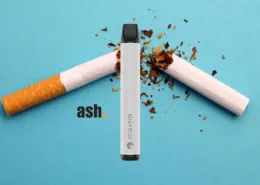Vape Companies in Ireland Face New Licensing Laws
In recent years, disposable vape pens have become increasingly popular among vapers. They offer a convenient and cost-effective way to enjoy vaping without the hassle of buying and refilling e-liquid or maintaining a device. Disposable vape pens are pre-filled with a specific flavor of e-liquid and are designed to be used until the e-liquid is gone. In this article, we’ll discuss the benefits of disposable vape pens and why they are becoming so popular.
The vaping industry in Ireland is set to undergo significant changes as the government considers new legislation that would require vaping companies to pay annual license fees. Health Minister Stephen Donnelly is examining the possibility of implementing a new licensing system that would impose a fee of €500 per shop selling e-cigarettes. This move could result in vaping retailers with multiple premises across the country paying thousands of euros every year.
New Regulations for Vaping Retailers
Currently, the system for tobacco retailers allows for a one-time registration fee of €50, enabling retailers to sell tobacco products from any number of premises without any additional costs. However, there is no existing license system in place for shops selling vaping products. The anticipated legislation, expected to be enacted in the autumn, will introduce an annual license requirement for each premises.
Under the proposed system, licenses will only be issued to owners who have operated their premises for a minimum of 12 months. This measure aims to crack down on pop-up stalls and ensure more stability in the industry. Additionally, the sale of cigarettes and vapes at music festivals will be banned, along with the prohibition of self-service sales through vending machines.
Addressing Youth Access and Normalization
The government has recently approved a bill that prohibits the sale of vaping products to individuals under 18 years of age. This measure is part of a broader effort to protect young people from the potential risks associated with vaping. It reflects the government’s commitment to promoting public health and safeguarding the well-being of the younger population.
To further discourage the normalization of vaping, advertisements for e-cigarettes near schools and on public transport will also be banned. By restricting the visibility of these products in close proximity to educational institutions and public transportation, the government aims to reduce the influence of vaping marketing on impressionable individuals.
Vape Business Ireland’s Perspective
Vape Business Ireland (VBI), an industry association representing vaping businesses, has expressed its general support for the introduction of a retail licensing system as proposed in the bill. VBI recognizes the importance of responsible regulation to ensure the safety and quality of vaping products on the market. They believe that implementing a licensing system will help create a more structured and accountable industry.
However, VBI’s spokesperson emphasized the importance of ensuring a feasible and streamlined process for obtaining licenses, which should not place an undue burden on business owners. They urge the government to develop a licensing framework that is easy to navigate, transparent, and cost-effective for retailers. By doing so, VBI believes that businesses will be more willing to comply with the regulations, fostering a cooperative relationship between the industry and regulatory authorities.
VBI acknowledges the well-intentioned regulations designed to prevent youth access to nicotine products. However, they stress the need for consistent and effective enforcement to ensure that vaping products are solely available to adult ex-smokers. VBI hopes that the funds collected through the retail licensing system can be allocated to provide additional resources to HSE environment health officers. This allocation would enhance the HSE’s ability to promptly remove non-compliant products from the market and enforce the regulations effectively.
Balancing Access and Regulation
While VBI supports the new regulations, they express concerns about the prohibition of obtaining licenses for selling vaping products at temporary or movable premises. VBI believes this restriction is excessive and fails to recognize the importance of prompt access to harm-reduction products for adult ex-smokers. They argue that adult ex-smokers should have the opportunity to access vaping products conveniently, especially in situations where age verification measures are in place and retailers possess the appropriate license.
VBI also highlights the positive impact vaping has had on public health, particularly in helping more than 200,000 people across Ireland transition away from smoking. They emphasize that adult ex-smokers should not be denied access to a product that has proven to be an effective tool for harm reduction. VBI encourages policymakers to strike a balance between regulation and accessibility to ensure that vaping remains an option for those seeking an alternative to traditional tobacco products.
In conclusion, the proposed introduction of a retail licensing system for vaping companies in Ireland represents a significant shift in the regulation of the industry. While aimed at ensuring the safety and accountability of vaping products, the new laws may pose financial challenges for businesses operating multiple premises. The government’s efforts to address youth access and prevent the normalization of vaping are commendable, but careful enforcement and consideration of adult ex-smokers’ needs are crucial to strike a balance. By fostering collaboration between the industry and regulatory authorities, Ireland can establish a framework that promotes responsible vaping practices while safeguarding public health.
- France to Ban Smoking in Most Outdoor Public Spaces from July 2025 - May 30, 2025
- Brazil’s Health Minister Opposes E-Cigarette Legalization - May 30, 2025
- Why Are Disposable Vapes Getting Banned in the UK? - May 30, 2025









